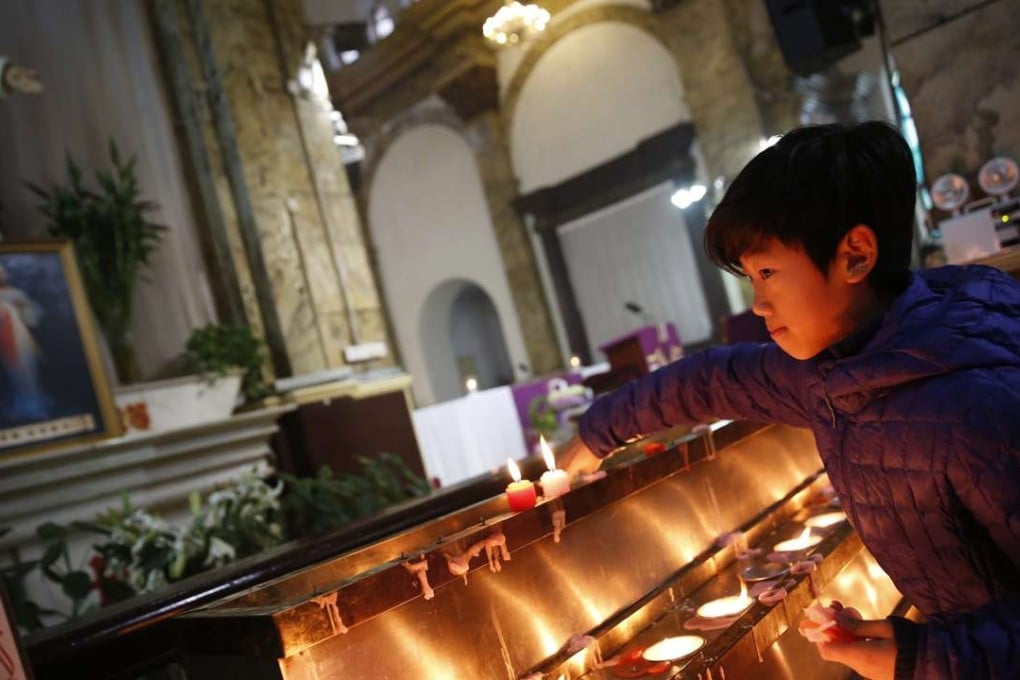Chinese Catholics wary of suggested reform to government-backed church
Hong Kong cardinal has proposed that Chinese government sanctioned association should concentrate on social welfare

Two priests and a former senior official in the government-backed organisation that oversees the Catholic church in China have rejected suggestions that its role should be downgraded as part of a deal to restore ties with the Vatican that were severed over 65 years ago.
The comments came after the head of the church in Hong Kong claimed that the Vatican and Beijing are close to an agreement over how to appoint bishops on the mainland, one of the main stumbling blocks to normalising ties.
Catholic bishops in the state-sanctioned church on the mainland are appointed by the government-backed Chinese Patriotic Catholic Association, but not all are recognised by the Vatican. However, in recent months, the Holy See for the first time publicly recognised two bishops in Sichuan and Shanxi that affiliate to the association.
Hong Kong Cardinal John Tong Hon wrote in the Sunday Examiner newspaper earlier this month that a deal was close in which Pope Francis would have the final say on the appointment of mainland bishops.
Cardinal Tong also suggested in the article that the patriotic Catholic association should no longer nominate candidates to become bishops and that its role should focus on charity and social welfare.